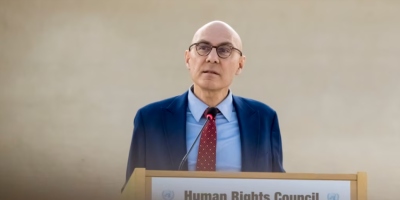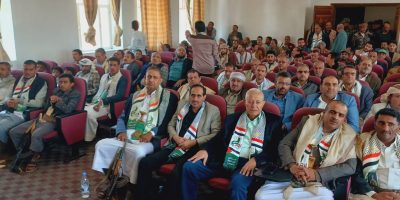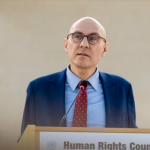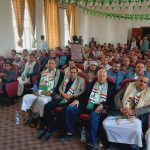The State of Qatar participated in the 10th meeting of Permanent Representatives to the League of Arab States and Ambassadors of the Political and Security Committee of the Council of the European Union (EU), held today in Brussels.
The State of Qatar’s delegation was headed by Acting Charge d’Affaires at the Embassy of the State of Qatar to the Arab Republic of Egypt and Permanent Representative to the League of Arab States, Maryam Ahmed Al Shaibi.
The meeting discussed the course of the Arab-European dialogue and ways to strengthen political and security consultation channels in light of the rapid regional and international developments. They also reviewed the most prominent issues, foremost among them the Palestinian issue, in addition to the latest developments in Syria, Lebanon, Libya, Sudan, Somalia and Yemen and their humanitarian and security implications. The meeting also followed up on issues of security in the Red Sea, water security, migration, refugees and displaced persons, and the Ukrainian crisis and its repercussions on regional and international security.
In this context, Al Shaibi affirmed the State of Qatar’s firm commitment to continuing its diplomatic and humanitarian efforts to support the Palestinian people, stressing that dialogue and a political solution are the only way to end the conflict and achieve a just and comprehensive peace.
She also reviewed Qatar’s ongoing mediation efforts in coordination with both the Arab Republic of Egypt and the United States of America, which resulted in previous understandings and truces, prisoner and hostage exchanges, and the entry of humanitarian aid into the Gaza Strip, noting that the Sharm El Sheikh Peace Summit represented a turning point that resulted in a ceasefire agreement in the Gaza Strip.
Al Shaibi expressed Qatar’s appreciation to regional and international partners for their cooperation, stressing Doha’s commitment to continuing to work towards achieving a just and sustainable peace that preserves the legitimate rights of the Palestinian people. She also emphasized that humanitarian efforts are inseparable from political solutions, and that ending the suffering of the Palestinians requires a cessation of aggression and urgent international action to address the humanitarian crisis in Gaza.
The State of Qatar will remain committed to its approach as a mediating and peace-making state, whose wise leadership dedicates its efforts to resolving conflicts through diplomatic means, alleviating the suffering in the Gaza Strip, and creating the appropriate conditions for the return of displaced persons to their lands, Al Shaibi added.
Regarding developments in the Russian-Ukrainian crisis, Al Shaibi affirmed that the State of Qatar has adopted a firm stance since the outbreak of the crisis based on prioritizing peaceful and diplomatic solutions. She stated that the State of Qatar has believed since the start that ending the conflict cannot be achieved through military force, but rather through dialogue, respect for international law, and the sovereignty of states.
She emphasized that the humanitarian dimension was a key focus of Doha’s actions, as the State of Qatar provided USD 100 million in aid to support the Ukrainian people, including the rehabilitation of health and educational infrastructure, the provision of drinking water, mine clearance, and the rehabilitation of agricultural lands.
Al Shaibi added that Qatar also provided 50 scholarships to Ukrainian students, believing that education is the cornerstone for building the future, and contributed to reuniting hundreds of children with their families. In April 2024, Qatar received a number of Ukrainian families as part of an integrated care and support program, in addition to supporting efforts to document and exchange prisoners’ letters.
Al Shaibi concluded her remarks by emphasizing Qatar’s readiness to participate in any regional or international efforts aimed at achieving an urgent and peaceful solution to the crisis, stating that Qatar will continue to call for dialogue and restraint, and to keep communication channels open in order to achieve security and stability.

















